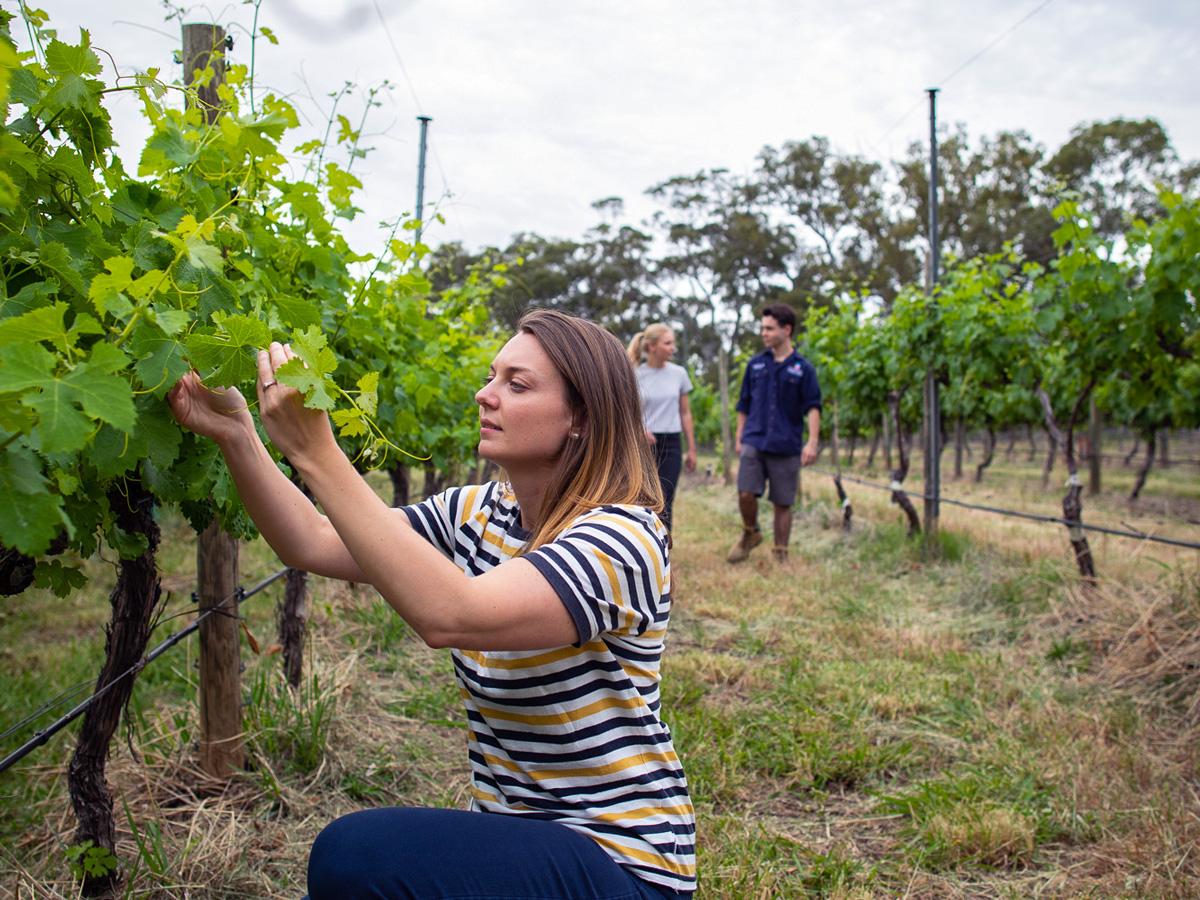Grape berry responses to extreme heat
Study the alcoholic effects of heatwaves: how grape berries shrivel and accumulate ethanol at high temperatures.
Grape berries, from which the world’s great wines are made, can make ethanol under conditions of stress – it’s glycolysis in action! One such stress is temperature – hanging in the full sun for hours at a time can cause internal berry temperatures to exceed 50oC.

This project focuses on making fundamental discoveries about how the biochemistry and physiology of grape berries respond to these extremely high temperatures during heatwaves.
There’s a close link to the Australian wine industry: the consequences of the biochemical and physiological responses result in a serious decline in berry quality, which in turn affects the quality and ultimately the price of the resulting wine.
We have discovered that grape berries can be starved of oxygen during heat waves. This is because respiration in the berry increases rapidly with increasing temperature, but the demand for oxygen is not supported by its diffusion into the berry resulting in a large oxygen deficiency. This results in oxidative respiration via mitochondria being inhibited and the fermentation pathway being activated. Fermentation results in the accumulation of ethanol in the berry.
Using innovative approaches, we have developed new techniques to monitor ethanol production in berries that will be used in the project offered here. High ethanol is hypothesised to cause stress to cells which may lead to cell death.
Cell death within the berry can result in the berries shrinking during ripening which reduces yield and concentrates sugars to excessive levels.
We know that this problem seems to be confined to certain varieties such as Shiraz, while other grapes seem to be less affected. This opens the opportunity to find out how the biochemistry may differ between varieties: specifically, how ethanol is synthesised and metabolised in the berry and how these differences are reflected in the process of cell death.
The research will involve cutting-edge technologies in molecular and cellular biology, molecular physiology, and biochemistry.
The outcomes of this research will unlock new knowledge in grape berry biochemistry that is relevant to many other fruits and will directly benefit the wine industry by providing an understanding of the effects of high-temperature events in berry ripening. The project will be supported financially by the wine industry and can be tailored to the skills and interests of the student.
The techniques and skills learned include:
- Electrode micromanipulation, and membrane biophysics.
- Plant immunohistochemistry –protein detection.
- Protein purification and enzymology.
- Image analysis, molecular biology, genetic or phylogenetic data analysis.
- RNA, DNA preparation, real-time-qPCR - cell-specific gene expression.
- Critical analysis of research data, and scientific methodology and communication
Supervisors

Associate Professor Chris Ford
Research area: School of Agriculture, Food and Wine
Recommended honours enrolment: Honours in Plant Science

Co-supervisor:
